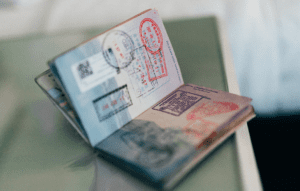The definition of authority has traditionally and transcendentally been the “power to influence or command thought opinion or behavior.” From the centralized monarchical states to the almost explosive expansionism of the liberal democratic model of governance, the concept of authority has transformed through the ages to reach its 21st-century form. At this point, the definition of authority has become so hazy, to the extent that calling it redundant would not be a complete exaggeration.
So then, what is authority in the 21st century? How do we go about defining it? Should we define it in the first place?
In order to determine the form authority has taken in today’s society, it is important to understand the difference between obedience and respect, hence establishing their connection to authority.
Key definitions
To begin with, obedience means compliance with an order, request, or law; or submission to one’s authority. The keyword in this phrase is submission. In today’s society, and especially when it comes to the political sphere, submission frequently entails undefinable obedience to authority, usually in the form of the prevailing political leader or party. Chiefly in authoritarian regimes or extremely flawed democracies, we face the exploitation of power that gets mistaken for authority.
Respect, on the other hand, is a situation in which someone or something is considered important and is held in high regard. When an institution or a leader has managed to gain the respect of his people as well as that of the institutions and governments he works with, that is when he/she possesses the truest form of authority in current times. Respect in the 21st century is a currency, and whoever has the most of it gets to enjoy legitimate authority and control many aspects of the domestic and international political, economic, and social spheres.
What is the distinction between power and authority, and why is it so important for intra-and-extra state relations? To put it simply, power is one’s capability to influence the actions of others, while authority is the legitimacy of that power. Legitimacy in its traditional form can be found in actions that express the public’s opinion on the behavior and decisions of states, i.e., free and fair elections, referendums, etc. With the evolution, however, of technology as well as the notions of legitimacy and authority alike, political participation and expression have diverged into alternative methods like online forums, public demonstrations, etc.
Relationship
This article began with the question of the definition of authority in our century, but the real question is: why has authority nowadays descended into pure power?
One quick look into the everyday news and one can observe significant abuse of power from a number of states and inertia from the states in the opposing field, which boils down to a bipolar international atmosphere. On one side, we face states under authoritarian regimes that have either created the illusion of authority around them through staged elections or generally function on the illegitimate use of power and force against any insurrection. This is an occasion when obedience overturns respect, therefore classifying the authority as illegitimate.
On the other side, we have the modern liberal democratic states that attempt to preserve the high moral ground of peaceful resolution through delegation, especially regarding international matters. In their case, the legitimacy of power and thus authority is expressed through lengthy and frequently exhaustive diplomatic procedures that have little impact on current issues. Even though in the majority of those cases obedience is not a crucial factor, respect is lacking greatly due to the inertia plaguing international affairs and the protectionist approach taken by many states as a response to global insecurity.
Consequences
As we are living in a post-WWII and post-9/11 world, the very idea of authority and the different applications that can be found around the globe are the very cause of international conflicts in the 21st century. In a political environment where direct conflict is seen as the last straw of state disagreement, governments are trying to use their authority to efficiently achieve their goals. The authority of those governments, however, can be questioned on the basis of the electoral turnout crisis faced in recent years, as well as the plurality of political ideas and parties springing up every electoral period. People become disinterested in participating in the electoral process when governments do not appear to use their authority efficiently to handle situations with visible results, leading to quasi-legitimate authority and descending amounts of respect.
Another matter related to the turnout crisis is political misalignment, where because of the abundance of parties in the political stage of each country and their constantly changing beliefs and goals result in the electorate losing its political affiliations without replacing them. In addition, the number of parties present in elections results in an ineffective allocation of seats and hung parliaments, coalitions, or minority governments with little legitimacy and ineffective authority.
Due to the disparities in the representative features of democracy in the 21st century, legitimate authority has transcended from the hands of the states to the hands of the electorate. In such an interconnected world, the incentivization of people towards using their voice, platforms, and resources to spread awareness and make a lasting impact on contemporary issues is easier and faster than ever. The influence of social media on the trajectory of current affairs seems to have mobilized officials to act in ways that they would not have if it had not been for the explicit expression of the masses.
All in all, authority has always been a difficult subject to define as well as to effectively apply. The characteristics of modern society have blurred the dimensions of authority, resulting in a casuistic process of conflict resolution and an international political scene living under the fear of the exploitation of power by one of its members. With the electorate discouraged, the only way to restore some of the authority lost between the lines is to fight for the causes we care about, incentivize the bodies of government, and exercise the powers we have as citizens of our countries and of the international community as it becomes the new reality.
Featured Cover Image: Stock







